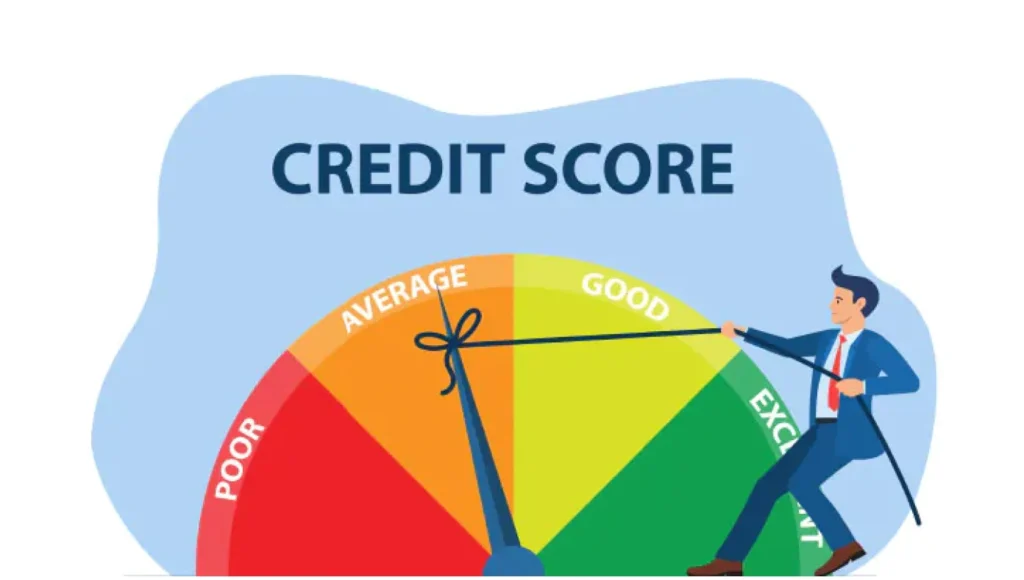Building a strong credit history is essential for financial independence and future borrowing opportunities. However, if you’re starting from scratch, the process can feel daunting. Establishing a solid credit foundation takes time and effort, but with the right steps, you can gradually build a positive credit history that will open doors for you in the future.

Understanding the Importance of Credit – Credit History
Credit history is a record of how you manage borrowed money, and it’s used by lenders, landlords, and even employers to evaluate your financial responsibility. Without credit, you may struggle to secure loans, rent apartments, or even get competitive rates on insurance. A good credit score can help you qualify for credit cards, car loans, and mortgages at favorable terms, while a poor or non-existent score can limit your options.
When starting from scratch, it’s essential to understand how credit works, what factors impact your credit score, and how to build a strong foundation.
Getting Your First Credit Account
To build a credit history, you need to have credit. One of the easiest ways to start is by applying for a secured credit card. These cards require a cash deposit as collateral, and your credit limit is usually equal to the deposit amount. Because the lender has some security, they are more likely to approve individuals with no credit history.
Use the card for small purchases and pay off the balance in full each month. This helps you build a positive payment history without accumulating debt. Your payment activity will be reported to the credit bureaus, allowing you to start establishing a credit profile. Once you’ve shown responsible use, you can transition to an unsecured card, which does not require a deposit.
Another option is to become an authorized user on someone else’s credit card. If you have a family member or friend with good credit, they can add you as an authorized user to their card. You don’t need to use the card, but their positive payment history will reflect on your credit report. This can help you build credit quickly without opening your own account.
Managing Your Payments Responsibly – Credit History
One of the most critical factors in building credit is maintaining a consistent payment history. Lenders want to see that you can manage debt responsibly, and the best way to demonstrate this is by making on-time payments. Late or missed payments can severely hurt your credit score, especially when you’re just starting out.
Set up automatic payments or calendar reminders to ensure you never miss a due date. Paying off your balance in full each month not only helps build a positive payment history but also avoids interest charges. If you’re unable to pay the full balance, make sure to at least pay the minimum amount required.
Consistency is key when it comes to payments, and over time, your positive habits will contribute significantly to your credit score.
Keeping Your Credit Utilization Low
Credit utilization—the ratio of your credit card balance to your credit limit—plays a crucial role in determining your credit score. Experts recommend keeping your credit utilization below 30%, meaning you should aim to use no more than 30% of your available credit at any given time. For example, if you have a $1,000 credit limit, you should try to keep your balance under $300.
High credit utilization signals to lenders that you may be overextended, which can hurt your score. On the other hand, keeping your utilization low demonstrates that you’re managing your credit responsibly.
If possible, pay down your balance before the statement closing date to reduce the reported utilization, and consider requesting a credit limit increase once you’ve shown responsible usage for several months.
Monitoring Your Credit Regularly – Credit History
As you build your credit, it’s important to regularly monitor your credit reports for accuracy. Mistakes can happen, and if incorrect information is reported, it can negatively impact your score. You’re entitled to one free credit report each year from the three major credit bureaus—Experian, Equifax, and TransUnion.
By reviewing your reports, you can track your progress and identify any potential issues, such as fraudulent accounts or incorrect balances. If you notice any errors, dispute them with the credit bureau to have them corrected.
Many financial institutions and apps also offer free credit score tracking, allowing you to stay on top of your score as it improves over time.
Diversifying Your Credit Types – Credit History
As you become more comfortable managing credit, it’s a good idea to diversify your credit mix. Lenders like to see that you can handle different types of credit responsibly. In addition to credit cards, consider taking out a small personal loan, car loan, or eventually a mortgage, as these installment loans can further boost your credit profile.
However, it’s important not to take on more debt than you can manage. Opening too many accounts too quickly can be risky, especially if you’re still learning how to navigate credit. Be strategic about when and how you add new accounts, and always prioritize responsible borrowing.
Conclusion
Building credit from scratch takes time, but it’s a crucial step toward achieving financial stability and freedom. By opening a credit account, making timely payments, keeping your credit utilization low, and monitoring your credit regularly, you can establish a strong credit foundation. Over time, your responsible financial habits will pay off, helping you qualify for better loan terms and financial opportunities. Remember, the key to building credit is patience and consistency.

